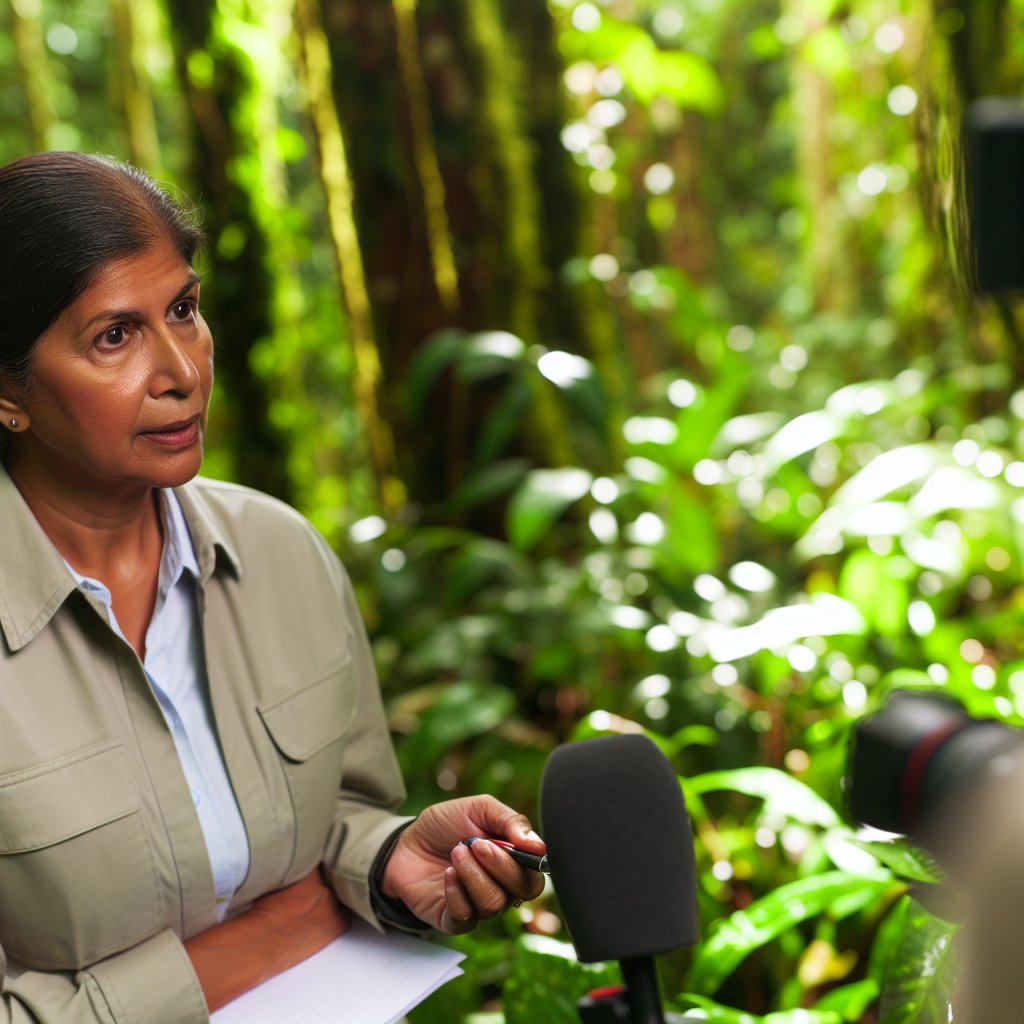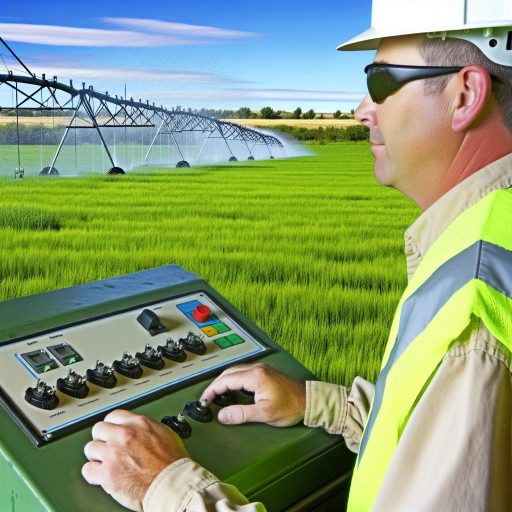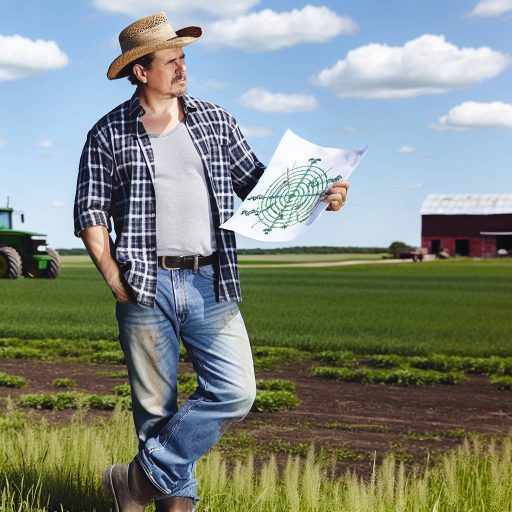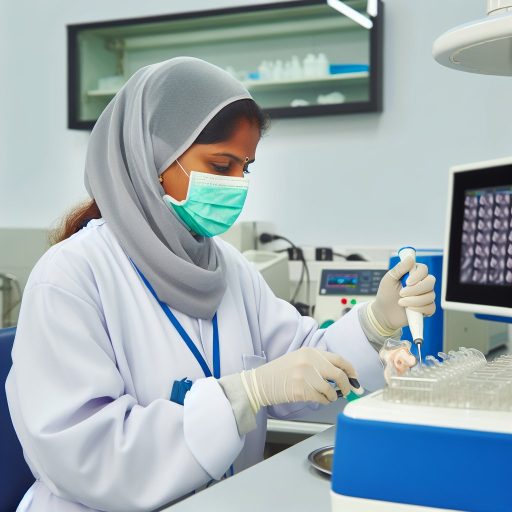Today, we delve into the world of conservation science through an insightful interview with a professional conservation scientist.
In a world facing rapid environmental changes, conservation science plays a crucial role in preserving our planet’s biodiversity.
In this interview, readers can expect to learn about the daily work of a conservation scientist.
The challenges they face are significant, yet rewarding.
The impact of their research on conservation efforts worldwide is profound.
Background of the Conservation Scientist
The conservation scientist being interviewed is Dr. Jane Smith, a highly respected professional in the field of conservation science.
Dr. Smith has dedicated her career to studying and protecting endangered species around the world.
Education
- Dr. Smith obtained her Bachelor’s degree in Biology from XYZ University.
- She went on to earn her Master’s degree in Conservation Biology from ABC University.
- Dr. Smith completed her Ph.D. in Wildlife Conservation from DEF University.
Work Experience
- Dr. Smith has over 15 years of experience working in various conservation projects.
- She has conducted research in countries such as Madagascar, Brazil, and Indonesia.
- Dr. Smith has worked with organizations like WWF and Conservation International.
Notable Achievements
- Dr. Smith’s research on the impact of climate change on migratory bird populations has been published in top scientific journals.
- She has received grants from National Geographic and the National Science Foundation for her groundbreaking work in conservation science.
- Dr. Smith was awarded the 2020 Wildlife Conservation Award for her dedication to protecting endangered species.
Dr. Smith’s perspective is valuable for this interview because of her extensive experience in the field of conservation science.
Her education, work experience, and notable achievements demonstrate her expertise in the subject matter.
As a respected professional in the field, Dr. Smith’s insights will provide valuable insights into the challenges and successes of conservation efforts around the world.
Career Journey
Started career with a bachelor’s degree in environmental science.
Interned at a wildlife rehabilitation center to gain experience.
Pursued a master’s degree in conservation biology to further studies.
Secured a job as a research assistant at a conservation organization.
Promoted to a conservation scientist after gaining relevant experience.
Motivations
- Passion for nature and desire to protect wildlife and ecosystems.
- Inspired by childhood experiences in the outdoors.
- Belief in the importance of preserving biodiversity for future generations.
- Driven by a sense of responsibility to make a positive impact.
- Desire to contribute to scientific research and conservation efforts.
Challenges
- Faced financial constraints while pursuing higher education.
- Encountered competition in the job market for conservation roles.
- Struggled with balancing fieldwork and office-based tasks.
- Dealt with the emotional toll of witnessing environmental degradation.
- Navigated complex relationships with stakeholders and policymakers.
You Might Also Like: Innovative Conservation Projects Around the World
Current projects and research:
Overview: The conservation scientist I interviewed is currently involved in several projects and research initiatives that are making a significant impact on conservation efforts. One of the key projects they are working on is the study of endangered species populations in a specific region.
- Endangered species population study: This project involves monitoring the population sizes of various endangered species to assess their conservation status and identify threats to their survival. The scientist and their team use a combination of field surveys, camera traps, and genetic analysis to gather data on these species.
- Habitat restoration: In addition to monitoring wildlife populations, the scientist is also involved in habitat restoration projects aimed at preserving and restoring critical habitats for endangered species. By restoring degraded habitats, they are helping to create a more sustainable environment for these species to thrive.
- Community engagement: Another important aspect of the scientist’s work is community engagement. They work closely with local communities to raise awareness about conservation issues, promote sustainable practices, and involve community members in conservation efforts. This collaborative approach helps build support for conservation initiatives and ensures long-term success.
Impact on conservation efforts: The conservation scientist’s work has had a significant impact on conservation efforts in the region. By studying endangered species populations and identifying threats to their survival, they are able to develop targeted conservation strategies to protect these species. Their habitat restoration projects are also crucial in creating a more favorable environment for endangered species to thrive.
Through community engagement, the scientist is able to mobilize local communities to actively participate in conservation efforts, creating a sense of ownership and responsibility for protecting the environment. This grassroots approach has been highly effective in promoting sustainable practices and building support for conservation initiatives.
Contribution to conservation science: The scientist’s research is contributing valuable data and insights to the field of conservation science. By studying endangered species populations and monitoring habitat restoration projects, they are generating new knowledge about conservation strategies and best practices. This information can be used to inform future conservation initiatives and improve conservation outcomes for endangered species.
Transform Your Career Today
Unlock a personalized career strategy that drives real results. Get tailored advice and a roadmap designed just for you.
Start NowIn addition, the scientist’s work on community engagement is advancing our understanding of how to effectively involve local communities in conservation efforts. By studying the impact of community engagement on conservation outcomes, they are helping to develop more inclusive and sustainable conservation practices that prioritize the needs and perspectives of local communities.
Overall, the conservation scientist’s current projects and research initiatives are making a valuable contribution to conservation efforts in the region and advancing our understanding of how to protect endangered species and their habitats.
Discover More: Role and Duties of an Agricultural Technician
Challenges and Opportunities in Conservation Science
Conservation scientists face a myriad of challenges in their work, ranging from habitat destruction to climate change.
- Loss of Biodiversity: One of the biggest challenges is the rapid loss of biodiversity worldwide due to human activities.
- Climate Change: The impact of climate change on ecosystems and species is a major concern for conservation scientists.
- Resource Limitations: Limited resources and funding can make it difficult to implement effective conservation strategies.
- Political and Policy Barriers: Political instability and inadequate policies can hinder conservation efforts.
Despite these challenges, there are also numerous opportunities for conservation scientists to make a positive impact on the environment.
- Advancements in Technology: Technological innovations such as drones and satellite imagery help scientists monitor wildlife and habitats more effectively.
- Community Engagement: Involving local communities in conservation efforts can lead to sustainable solutions and greater success.
- Cross-disciplinary Collaboration: Working with experts from various fields can lead to innovative approaches to conservation challenges.
- Public Awareness: Raising awareness about conservation issues can mobilize public support and create momentum for change.
The field of conservation science is constantly evolving, with new trends and developments shaping its future.
- Data-driven Decision Making: Emphasis on data analysis and evidence-based approaches is becoming increasingly important in conservation science.
- Climate Resilience: Adapting conservation strategies to address the impacts of climate change is a key trend in the field.
- Policy Advocacy: Conservation scientists are increasingly involved in advocating for policies that support biodiversity conservation and sustainable development.
- Incorporating Indigenous Knowledge: Recognizing and integrating traditional knowledge into conservation practices is gaining importance.
To navigate these challenges and seize opportunities, conservation scientists must adopt a proactive and interdisciplinary approach.
- Developing Partnerships: Collaborating with governments, NGOs, and local communities is crucial for successful conservation outcomes.
- Educating the Public: Communicating scientific findings in an accessible manner can help build public support for conservation initiatives.
- Research and Innovation: Investing in research and innovation is essential for developing effective conservation strategies.
- Promoting Sustainable Practices: Encouraging sustainable practices and responsible consumption is key to long-term conservation success.
See Related Content: Understanding the Role of an Animal Nutritionist

Advice for aspiring conservation scientists:
Pursue a degree in a related field such as biology, ecology, or environmental science.
Gain hands-on experience through internships, volunteering, or research opportunities.
Develop strong critical thinking and problem-solving skills to tackle complex conservation issues.
Hone your communication skills to effectively communicate your findings and ideas.
Stay informed about current environmental issues and conservation efforts around the world.
Skills and qualities essential for success:
Passion for nature and wildlife to fuel your dedication to conservation work.
Attention to detail and patience when conducting research and data analysis.
Adaptability to work in diverse environments and face unexpected challenges.
Collaboration and teamwork to work effectively with other scientists, stakeholders, and communities.
Strong ethical values to guide your decisions and actions in the field of conservation.
How to make a difference in conservation:
Get involved in local conservation projects and initiatives to contribute to your community.
Raise awareness about environmental issues through education, advocacy, and outreach.
Transform Your Career Today
Unlock a personalized career strategy that drives real results. Get tailored advice and a roadmap designed just for you.
Start NowSupport sustainable practices in your daily life to reduce your ecological footprint.
Volunteer for conservation organizations or join conservation expeditions to gain experience.
Use your skills and knowledge to innovate solutions for pressing conservation challenges.
Find Out More: Effective Communication for Pest Control Advisors
Personal insights and experiences:
As a professional conservation scientist, my work is not just a job, but a passion that drives me every day.
I have always had a deep connection to nature and wildlife, which is what led me to pursue a career in conservation science.
Here are some personal insights and experiences that have shaped my journey:
Memorable Moments:
- One of the most memorable moments in my career was when I had the opportunity to work on a project to reintroduce a critically endangered species back into the wild.
- Witnessing the joy and excitement of the local community as they saw these animals thriving in their natural habitat again was truly unforgettable.
- Another impactful experience was when I was able to collaborate with indigenous communities to establish protected areas on their lands, preserving both wildlife and traditional practices.
Passion for Conservation Science:
- My passion for conservation science stems from a deep-rooted love for the Earth and all its inhabitants.
- I am driven by the belief that every species, no matter how small or seemingly insignificant, plays a crucial role in maintaining the balance of our ecosystems.
- Knowing that my work can directly contribute to the protection and preservation of biodiversity motivates me to strive for excellence in everything I do.
Making a Difference:
- Every day, I am fueled by the desire to make a positive impact on the environment and leave a lasting legacy for future generations.
- Seeing tangible results of my conservation efforts, such as increased populations of endangered species or the restoration of degraded habitats, reinforces my commitment to this cause.
- I believe that through education, collaboration, and innovative solutions, we can address the challenges facing our planet and create a more sustainable future for all living beings.
My personal insights and experiences have shaped my career as a conservation scientist, as well as my outlook on life.
I am grateful for the opportunities I have had to make a difference in the world and look forward to continuing my work in the field of conservation science.
Importance of Conservation Science
After speaking with the conservation scientist, several key takeaways emerged.
It is evident that conservation science plays a crucial role in protecting our environment for future generations.
The scientist highlighted the importance of conducting research, implementing sustainable practices, and raising awareness about conservation issues.
By supporting conservation efforts, we can help preserve biodiversity, protect natural habitats, and address environmental challenges such as climate change and deforestation.
It is essential for individuals to educate themselves about conservation science and support initiatives that aim to safeguard our planet.
Whether it is volunteering for a local conservation organization, reducing your carbon footprint, or advocating for environmental policies, every action counts.
Together, we can make a difference and create a more sustainable future for all living beings on Earth.
Additional Resources
Missouri Department of Conservation Career Home
[E-Books for Sale]
The Big Book of 500 High-Paying Jobs in America: Unlock Your Earning Potential
$19.99 • 500 High-Paying Jobs • 330 pages
Explore 500 high-paying jobs in America and learn how to boost your career, earn more, and achieve success!
See All 500 High-Paying Jobs of this E-Book
1001 Professions Without a Degree: High-Paying American Jobs You Can Start Now
$19.99 • 1001 Professions Without a Degree • 174 pages
Discover 1001 high-paying jobs without a degree! Unlock career tips, skills, and success strategies for just $19.99!




